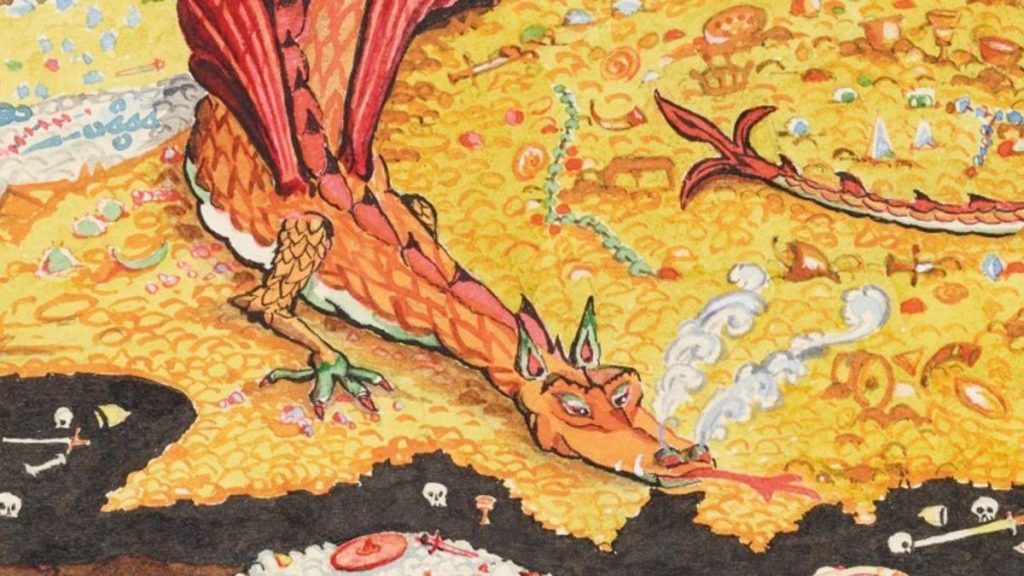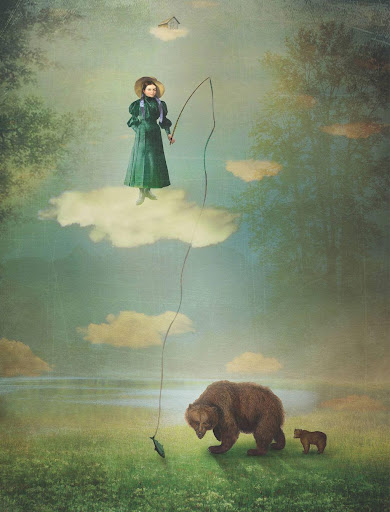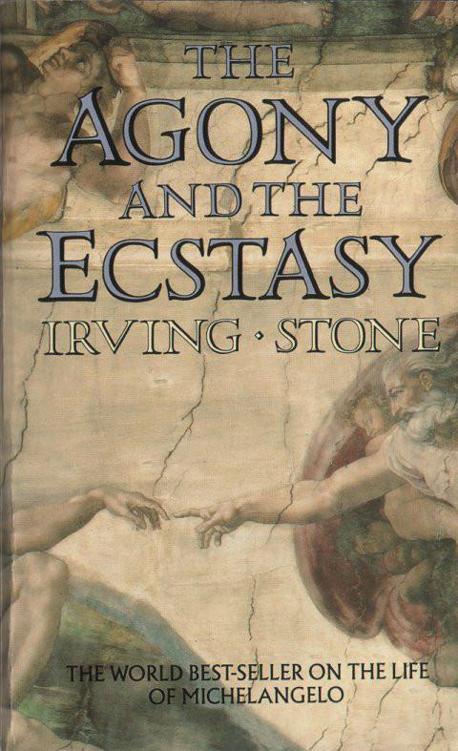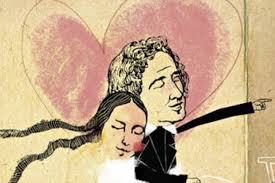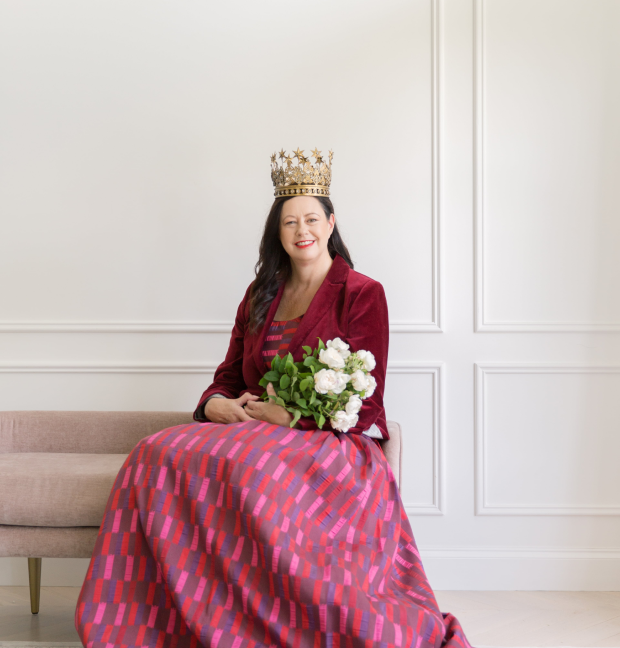J.K. Rowling and the boy wizard with the lightning scar.
Christopher Paolini, and the poor farm boy who tames a dragon.
Stephanie Meyer, and her sparkling vampires.
Their books have sold more than 500 million copies in the last dozen years. Add the sales of J.R.R Tolkien (150 million for The Lord of the Rings alone), C.S. Lewis (120 million for the Narnia series), Robert Jordan (44 million), Terry Brooks (21 million), Dragonlance (20 million) and the Artemis Fowl books (18 million) – and it is clear that fantasy is the most popular of narrative forms.
This is not just true of novels.
Of the top grossing movies of all time, only the first of the Top 10 – Titanic – is NOT a fantasy. This list includes Lord of the Rings, Pirates of the Caribbean, the Harry Potter movies, Star Wars, and Shrek.
It is clear that the world is hungry for tales of epic quests, dragons, vampires, wizards, magic rings and cloaks of invisibility. One publishing house in the US has even issued their staff with a T-shirt that reads ‘Unicorns Sell!’
J.R.R. Tolkien’s illustration of the dragon Smaug for The Hobbit
But why? Why are such stories so enormously popular? And, more interestingly, why are they so profoundly important? Why should we not only be allowing our children to include fantasy in their reading diet, but actually encouraging it?
Perhaps we should start by defining exactly what fantasy fiction is. Some people believe it is nothing but escapist trash, and should be banned along with fast food and lollies. Other people believe it is the work of the Devil (I kid you not). Still others believe writers of fantasy fiction have taken on the mantle of the ancient myth-makers, creating a new archetypal framework for a Nietzschean world that has outgrown the mouldy old myths of the past.
I think fantasy is best described as a kind of fiction that evokes wonder, mystery or magic, a sense of possibility beyond the ordinary world in which we live, and yet which reflects and comments upon that known world.
Fantasy drives its tap root into the deep rich soil of myth and legend, fairytale and folklore. When our ancestors crouched about the camp fire at night, it was stories of gods and heroes, monsters and marvels, which they told to hold back the terrors of the night. Those ancient storytellers were both trying to make sense of the mysterious workings of the world and teaching their audience the secret boundaries of behavior and belief. As Marina Warner says, in ‘From the Beast to the Blonde: On Fairy Tales and their Tellers’ ‘Anything can happen (in fairytale). This very boundlessness serves the moral purpose of the tale, which is precisely to teach where boundaries lie.’
Until the Renaissance, tales of heroes and monsters and magical talismans formed the mainstream of the world’s literature. Homer’s The Odyssey is filled with witches, nymphs and one-eyed giants, as is The Aenead and Ovid’s Metamorphoses; indeed, the Bible itself is crammed with marvels. Shakespeare was a sublime fantasist. Where would Hamlet be without the ghost? Where would Macbeth be without the witches, or A Midsummer Night’s Dream without the fairies?
The rise of scientific and rationalist thought saw the reputation of fantasy sink – it was seen as childish, superstitious, and even dangerous. Educators sternly banned the telling of fairy tales; in 1854, Gustave Flaubert instructed writers “to confine ourselves to relating the facts.”
Then came the Romantic poets and the Gothic novelists, passionately espousing a world of the spirit and the imagination. Gradually writers again began to explore ideas of the supernatural and the strange, the magical and the miraculous. Writers like George Macdonald and Oscar Wilde and Hans Christian Anderson wrote their own fairy tales, or took old stories and breathed fresh life into them. Ghosts crept into the work of Charles Dickens and Emily Bronte. Peter Pan, Alice in Wonderland and the Wizard of Oz were invented.
Modern fantasy was born in the work of J.R.R Tolkien, T.H. White and C.S. Lewis in the 1940s and 1950s. When most people think of fantasy, it is their worlds – filled with flying horses, enchanted swords, magic rings, dragons, and quests - that come to mind.
Yet fantasy is a much broader and deeper and richer realm than even the marvellous worlds of Middle-Earth, the isle of Gramarye and Narnia. Its borders lie as far apart as the land of the Moomintrolls, and the smoky London of magicians and djinn in Jonathon Stroud’s The Amulet of Samarkand.
Fantasy writers range in style from the sardonic jester Terry Pratchett to the wise old man, Lloyd Alexander, to the precocious child Alexandra Adornetto (who was 13 when she wrote her first novel, The Shadow Thief).
Some fantasy writers set their stories in our own world where strange, uncanny things can happen. A girl playing hide-and-seek stumbles through a wardrobe into a snowy land of fauns and talking beasts. A clock strikes thirteen and a boy, Tom, slips back in time to a midnight garden. Another boy Will wakes up on his 11th birthday and discovers that he is an Old One, destined to battle the forces of the Dark. Two boys run away from their aunt and uncle and meet the mysterious Thief Lord in Venice, who sets them to help him steal a wooden wing.
Other fantasy novels are set far, far away or long, long ago, or even perhaps sideways, in a parallel world that lies pressed up against our own. Who can forget the many worlds of the Chrestomanci (our own world being called, prosaically, World 12B)? Or Phillip Pullman’s The Subtle Knife? A simple slit in the fabric of the universe and we can step through to …. anywhere …
So, fantasy is a deep-rooted, broad-branched tree that has grown and flourished over the ages, always finding new tellers and new audiences. Yet its enduring popularity is not simply because it is, as Joseph Campbell said of myth, ‘the one, shape-shifting yet marvelously constant story that we find.’
I am a passionate believer in the power of fantasy fiction to help us learn to think bigger and feel bigger – it enriches our imaginations, stimulates our curiosity, pushes out the boundaries of what is possible, and allows us to face our own internal monsters in a safe and playful manner.
We all have dreams and desires and wishes and fears – to be rescued, to be chosen, to make a difference, to be free, to be happy. Fantasy fiction provides an arena where we can play out those deeply desired dreams - and face our darkest fears. Because fantasy speaks in what Ursula le Guin called “the language of the night” – symbol and metaphor and archetype – it connects directly with that hidden, primeval part of us, the unconscious. Again as Ursula le Guin says so beautifully, ‘we all have the same dragons in our psyche, just as we have the same hearts and lungs in our body.’
Like mythology and the “wonder tales” of the past, fantasy grapples with the big, difficult questions of life – the battle between good and evil, the nature of fate and self-will, the ability of a single person to change the world. But because these deep issues are hidden within a compelling story, they do not become a sermon. Philip Pullman said, when accepting the Carnegie Medal for The Golden Compass: “’Thou shalt not’ is soon forgotten, but ‘Once upon a time’ lasts forever.”
In fact, there are many literary critics today that argue that modern fantasy has taken the place of the ancient myths and religions in providing a new way to teach deep-felt spiritual values or provide a moral framework in a world where the old traditions are increasingly felt to be devoid of meaning or relevance. Phillip Pullman’s His Dark Materials is probably the one that leaps immediately to mind, but other mythopoiec authors include Jane Yolen, Neil Gaiman, Robert Holdstock, and Michael Chabon.
Jane Yolen has written: ‘the world of fantasy books returns to us the great words of power that, in order to be tamed, have been excised from our adult vocabularies …. These words are: Good. Evil. Courage. Honour. Truth. Hate. Love. They are a litany, a charm so filled with power we hardly dare say them. Yet with these magical words, anything is possible: the transformation of human into beast, dead into living, night into day, year now into year then or year 3000. They are the stuff of which our visions are woven, the warp and weft of our crafted dreams.’
I think it is true that what fantasy can do better than just about any other form of literature is unlock what William Blake called “mind-forged manacles”, setting free the imagination. Albert Einstein said “The mind can proceed only so far upon what it knows and can prove. There comes a point where the mind takes a higher plane of knowledge, but can never prove how it got there. All great discoveries have involved such a leap.”
The most common misconception about fantasy, I think, it is it’s the literary equivalent of fast food – quick, cheap and lacking in nutrition. In fact, fantasy is one of the most difficult genres to write well. A writer of contemporary realism does not need to describe a bus for the reader to conjure up an image of it in their minds. They do not need to explain the many subtle intricacies of our culture. A fantasy writer – particularly one that is creating a secondary world out of nothing more than the stuff of their imagination – has to not only describe and explain the strange and unknown, but they have to do so without ever disrupting the natural flow of the story and without dragging down the pace. The worlds fantasy writers create must, if they are to work, be believable. They must have the clear ring of truth.
It is not easy to build castles in the air that will endure for generations of readers. Each stone has to be cut and set with care, and the foundations must be strong and steady. The make-believe world must have its own internal logic if readers are to pay E.M. Forster’s extra coin, the difficult suspension of disbelief.
Yet most people who read fantasy do not do so because it grapples with the key ontological questions of humanity, or because it allows them to unlock their imagination and let it soar free. They read fantasy fiction because it makes them happy.
Of all genres of fiction, fantasy is the one which jubilantly holds out hope for the future. Its heroes triumph over death and despair; good triumphs over evil; the smallest hero has a chance to change their world for the better. This is not a denial of all that is tragic and dark in our world. It is transcendence.
George Orwell’s vision of our future was a boot stamping in our face – forever.
Tolkien’s vision was “a piercing glimpse of joy.” In these dark and difficult days, when the headlines are filled with tales of horror and cruelty, when teenage suicides are ballooning, and so many people feel weighted with despair, books which hold out the promise of escape and renewal should surely be celebrated, not sneered at.
C.K. Chesterton wrote, “children already know about dragons. What fairy tales teach children is that dragons can be slain.’
Unless, of course, it is like Kenneth Grahame’s reluctant dragon who just wants to stay in his cave and write poetry!
Kate Forsyth is the internationally bestselling author of The Puzzle Ring,
The Gypsy Crown, The Starthorn Tree, and her latest YA fantasy, The Wildkin’s Curse, a tale of high adventure and true love.


